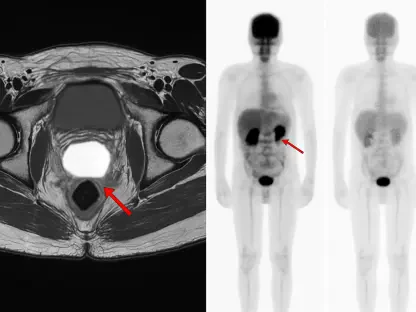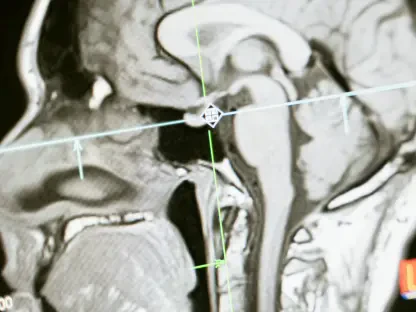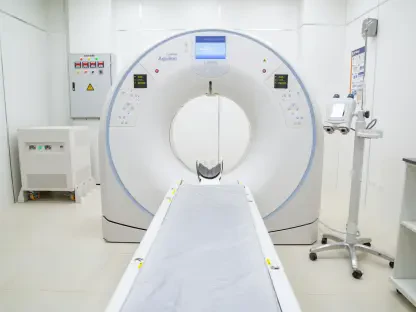Concerns about the safety and quality of maternity care at Portiuncula Hospital in County Galway, Ireland, have been highlighted due to persistent issues in communication, governance, clinical care, leadership, and infrastructure. These concerns were identified through a series of five separate external reviews, which have prompted significant operational changes for high-risk pregnant mothers. As a direct result of these findings, Portiuncula Hospital has made a decisive move to redirect high-risk pre-birth care to Galway University Hospital or a hospital of the mother’s choice. This decision underlines the complex challenges the hospital faces in ensuring safe and effective maternity services for women with high-risk pregnancies. Such pregnancies encompass those with a history of infant loss, significant medical history, major obstetric hemorrhage, obesity, maternal age, or anticipated delivery before 35 weeks.
Issues Identified in Maternity Care
The reviews conducted highlight deep-seated challenges within Portiuncula Hospital’s maternity services. Despite an earlier 2018 report that pointed out similar deficiencies in governance and training, recent reviews have stressed the need for broad and comprehensive changes. These problems are not isolated incidents but rather a pattern requiring significant and sustained efforts for improvement. The identification of issues in communication points to the need for a more streamlined information flow between medical staff and patients. Governance concerns suggest that decision-making processes may be flawed or lacking oversight, putting mothers and infants in potentially unsafe situations. Improving clinical care is crucial, as it involves direct patient interactions and interventions that can have life-altering consequences. Leadership issues highlight the necessity for competent management to inspire confidence and guide staff effectively, while infrastructure inadequacies may involve outdated facilities or insufficient resources that impact service delivery. Addressing these multifaceted challenges is critical in moving towards safer maternity care practices in the region.
Redirecting High-Risk Pregnancy Care
The hospital’s decision to redirect high-risk pregnancy care underscores the need for immediate action to protect the health and safety of expectant mothers and their babies. This redirection to Galway University Hospital or a hospital of the mother’s choosing is seen as a necessary step in managing the complex needs of high-risk pregnancies. High-risk cases are identified based on several factors, including previous infant loss, significant medical history, potential for major obstetric hemorrhage, obesity, advanced maternal age, and the expectation of delivery before 35 weeks. By offering alternative care options, Portiuncula Hospital is attempting to ensure that these complex cases receive the tailored and comprehensive care they require. Nonetheless, this redirection presents its own challenges, such as increased patient loads at receiving facilities and potential travel difficulties for families. Ensuring that these transitions are smooth and that care levels remain high at new institutions is paramount. Furthermore, this move emphasizes the systemic issues within Portiuncula Hospital that must be addressed to restore trust and reliability in its maternity services.
Addressing the Need for Change
Efforts to rectify the systemic deficiencies at Portiuncula Hospital include significant organizational changes and a commitment to implementing the review recommendations by the Health Service Executive (HSE). The appointment of a new management team earlier this year aims to address these ingrained issues, spearheading service enhancements essential for safer maternity care. Additionally, an established helpline provides crucial support for expectant mothers navigating these changes, ensuring that they receive timely and accurate information. The ongoing problems at Portiuncula Hospital highlight broader deficiencies within the prenatal medical governance framework, necessitating a holistic approach to reform. The changes prompted by the recent reviews have the potential to set a precedent for other healthcare institutions, stressing the importance of transparency, accountability, and a commitment to continuous improvement. By addressing these issues head-on, Portiuncula Hospital can move towards a more stable future where expectant mothers feel secure and supported in their maternity care journey.
Looking Toward a Safer Future
Recent reviews have underscored persistent challenges within Portiuncula Hospital’s maternity services. An earlier 2018 report had already highlighted deficiencies in governance and training, yet current assessments emphasize the urgent need for comprehensive reform. These issues are not isolated; they form a concerning pattern that demands substantial and ongoing efforts for improvement. Poor communication among medical staff and patients necessitates a more efficient information flow. Governance problems suggest flaws in decision-making processes, potentially endangering mothers and infants. Enhancing clinical care is imperative due to its direct impact on patients, where interventions can have life-altering effects. Leadership concerns demand capable management to inspire trust and effectively guide staff, while infrastructure deficits may point to outdated facilities or inadequate resources affecting service delivery. Addressing these complex challenges is vital for advancing safer maternity care practices in the region.









